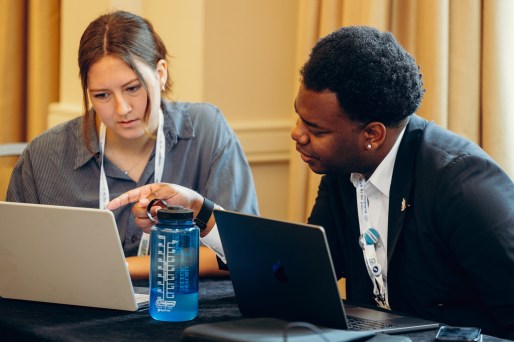FAQs About stnews.live You Need to Read
Wiki Article
The Importance of Fact-Checking worldwide of News Online
The occurrence of misinformation in today's on-line news landscape has reached startling degrees. Fact-checking organizations play an essential role in counteracting this trend. They validate cases and enhance the credibility of journalism. The performance of these organizations typically hinges on their methods and public assumption. As audiences navigate this complicated setting, the implications of their searchings for may shape the future of news intake and depend on. What does this mean for the integrity of info moving onward?
The Surge of Misinformation in the Digital Age
How has the introduction of digital innovation added to the spread of false information? The fast development of the web and social media systems has actually assisted in the dissemination of details at an unmatched rate. Customers can share short articles, videos, and opinions with a simple click, often without validating the material's precision. Formulas prioritize marvelous or mentally charged product, causing a proliferation of deceptive narratives that record attention.Furthermore, the privacy afforded by electronic platforms allows people to spread incorrect info without liability (stnews.live). Misinformation prospers in resemble chambers, where users are subjected largely to viewpoints that strengthen their ideas, better entrenching fallacies. The saturation of info can bewilder users, making it testing to determine legitimate sources from unstable ones. Consequently, misinformation has actually become a prevalent issue in the digital landscape, influencing public viewpoint and count on legit news resources
The Role of Fact-Checking Organizations
Fact-checking organizations play an important function in boosting the trustworthiness of journalism by validating insurance claims made in news reports. Their initiatives are essential in combating false information, making certain that accurate details dominates in the electronic landscape. By holding media outlets accountable, these companies add substantially to informed public discourse.Enhancing Reputation in Journalism
While false information proliferates in the digital age, fact-checking organizations play an essential role in improving the credibility of journalism. These organizations carefully verify insurance claims made in newspaper article, public declarations, and social media posts, guaranteeing that information distributed to the public is exact and reliable. By giving independent assessments, they work as a crucial resource for journalists, assisting them maintain high criteria of integrity. On top of that, their efforts advertise openness in media, cultivating public count on. As target markets come to be progressively discerning, the existence of trusted fact-checking entities can identify reliable news sources from those that might spread frauds. Eventually, the dedication of fact-checking companies to maintain reliability is essential for the health and wellness of autonomous discourse.Combating False Information Successfully
As misinformation proceeds to spread quickly throughout digital systems, the duty of fact-checking organizations comes to be increasingly essential in the fight for accurate details. These companies function as guard dogs, scrutinizing insurance claims made by somebodies and media outlets to guarantee liability. By employing extensive research study techniques and expert analysis, they confirm facts and make clear deceptive stories. Their findings are shared through numerous networks, enlightening the public and promoting essential reasoning. Furthermore, collaborations with social media platforms enhance their reach, allowing for prompt flagging of false details. As digital literacy grows, the influence of fact-checking organizations is necessary in equipping target markets to discern truth from fallacy, ultimately adding to a more enlightened culture.Exactly How False Information Affects Public Assumption
Misinformation greatly undermines trust fund in media, leading target markets to question the integrity of news resources. Therefore, individuals frequently gravitate towards electrical outlets that enhance their present ideas, adding to the polarization of opinions. This dynamic produces a fragmented info landscape, where shared recognizing comes to be significantly tough to achieve.Rely on Media

Count on media has actually come to be significantly breakable in the electronic age, where the fast spread of false information can skew public understanding. As false information multiplies across social media sites and on the internet platforms, audiences commonly discover it testing to recognize credible resources from unreliable ones. This uncertainty fosters skepticism, leading lots of individuals to examine the motives behind news reporting. Trust in developed media outlets has actually lessened, as consumers increasingly turn to different resources that may do not have extensive editorial criteria. This erosion of depend on not just impacts individual beliefs however also threatens the collective ability to participate in notified discussions. Inevitably, the stability of journalism goes to stake, highlighting the vital need for reliable fact-checking to restore self-confidence in the media landscape.

Polarization of Opinions
The enhancing apprehension towards typical media has added to a growing polarization of opinions among the general public. False information, commonly shared via social media sites and on-line systems, plays a considerable duty in forming unique ideological splits. Individuals regularly seek out information that straightens with their pre-existing ideas, strengthening their perspectives while dismissing opposing perspectives. This resemble chamber result intensifies divisions, causing a fragmented public discourse where consensus becomes progressively evasive. Furthermore, sensationalized narratives thrive in this atmosphere, additionally skewing public assumption and fostering question in reputable resources. As polarization intensifies, the necessity for efficient fact-checking ends up being paramount to link spaces and promote informed discussions, ultimately making certain a more natural society capable of navigating complicated issues.Strategies for Effective Fact-Checking
Effective fact-checking counts on a methodical technique that consists of complete study, confirmation of resources, and essential evaluation of cases. A fundamental strategy Click Here is cross-referencing details from numerous credible resources to validate its precision. Fact-checkers usually make use of specialized databases and archives to map the origin of specific declarations, making sure that the reported information lines up with recorded proof.Another essential approach involves looking at the context in which claims are presented. Misleading details can occur from out-of-context quotations or discerning data use. By checking out the more comprehensive story, fact-checkers can determine prospective biases or false impressions.
Moreover, involving with specialists in relevant areas can supply quality and understanding that enhances the fact-checking process. This collaboration can uncover nuances that laypeople might neglect - stnews.live. Eventually, a regimented method combining these methods promotes a much more educated public, improving the dependability of info shared in the digital age
The Impact of Social Media on News Intake
How has social media sites changed the way people eat news? The development of systems like Facebook, Twitter, and Instagram has notably modified news consumption patterns. News is now distributed rapidly, allowing customers to accessibility real-time updates and involve with web content with sort, shares, and remarks. This immediacy has actually fostered a choice for bite-sized details, frequently at the expense of in-depth evaluation.Social media enables personalized news feeds, where algorithms curate web content based on user preferences, creating resemble chambers that might limit direct exposure to varied point of views. The role of traditional news electrical outlets has actually decreased as individuals increasingly rely upon peer referrals and trending topics. The trustworthiness of information is typically jeopardized, as sensationalism can overshadow accurate coverage. Generally, social media has actually reshaped news consumption, emphasizing rate and personalization while challenging the standards of journalistic integrity.
Equipping Audiences to Determine Dependable Resources

In addition, taking a look at the authorship and organizational history of newspaper article can expose possible predispositions. Cross-referencing info throughout multiple respectable outlets further improves the confirmation procedure. Using electronic devices, such as web browser extensions that rate the trustworthiness of web sites, can also aid in determining helpful resources trustworthy information. By actively involving with these resources and growing an essential frame of mind, audiences can much better furnish themselves to recognize trusted news sources, ultimately fostering a more informed society in the middle of the complexities these days's media setting.
The Future of Journalism and Fact-Checking
As the media landscape evolves, the future of journalism and fact-checking faces both challenges and opportunities. The rise of electronic platforms has actually democratized info circulation, enabling diverse voices to emerge. This has likewise led to the spreading of misinformation, demanding robust fact-checking systems. Reporters will increasingly rely upon technology, consisting of AI tools, to validate facts quickly and successfully.Collaboration between news organizations and fact-checking entities is expected to strengthen integrity and openness. Target market interaction will certainly play a crucial duty, as educated visitors end up being considerable companions in identifying credible web content.
The need for liability visit this web-site and precision is likely to grow, pushing journalists to support high requirements in their reporting. Ultimately, the future of journalism may hinge on its ability to adapt to technological developments while preserving journalistic integrity, making certain that fact-checking stays a keystone of credible news.
Often Asked Inquiries
Exactly How Can I Report Misinformation I Come Across Online?
To report misinformation come across online, people can utilize platform-specific coverage tools, provide clear proof, and share the information with fact-checking companies. Engaging with community conversations can likewise assist raise awareness concerning the misinformation.What Prevail Indications of False Information in News Articles?
Typical indicators of misinformation in news posts consist of marvelous headings, absence of qualified resources, psychological language, inconsistent realities, and lack of writer credentials. Visitors ought to critically evaluate content for these indications to discern precision.Exactly How Do Fact-Checkers Validate Sources?
Fact-checkers verify sources by cross-referencing info with credible databases, consulting specialists, and examining the original context of cases. They likewise analyze the integrity of the resources, ensuring accurate and credible details for public intake.What Lawsuits Can Be Taken Against Misinformation?
Legal activities against false information might consist of libel lawsuits, cease-and-desist orders, and governing charges. Victims can prosecute via civil courts, while some territories impose penalties or permissions on systems sharing false information.Are There Apps for Fact-Checking News On-The-Go?
Numerous apps exist for fact-checking news on-the-go, including Snopes, FactCheck.org, and PolitiFact. These applications help users validate cases promptly, promoting informed decision-making and fostering a much more critical approach to consuming news in real-time.Report this wiki page